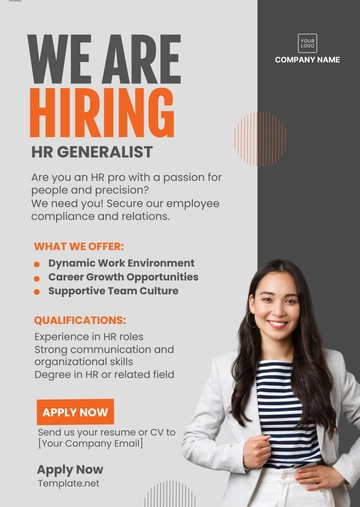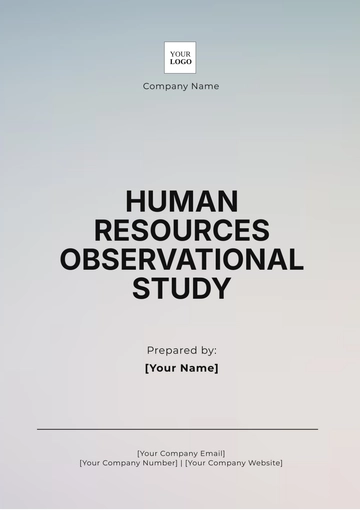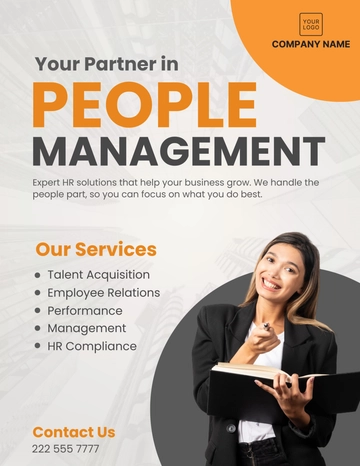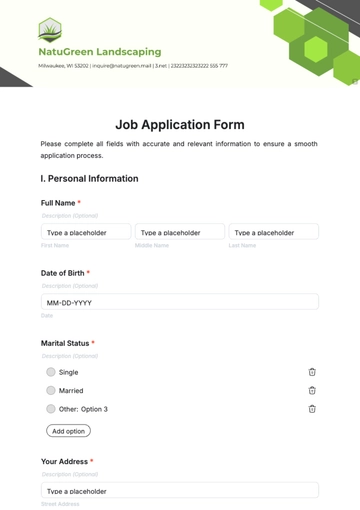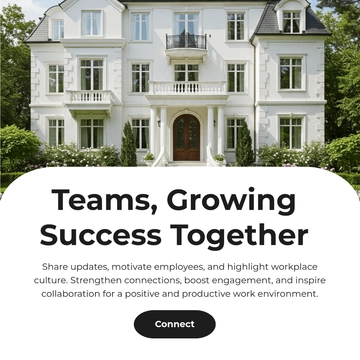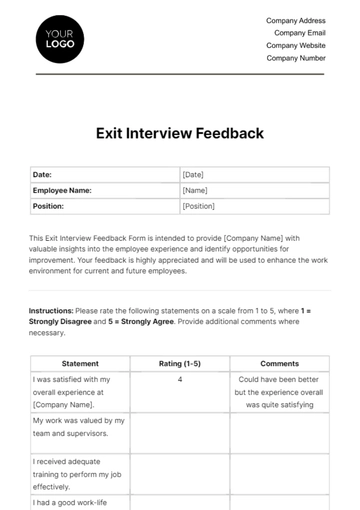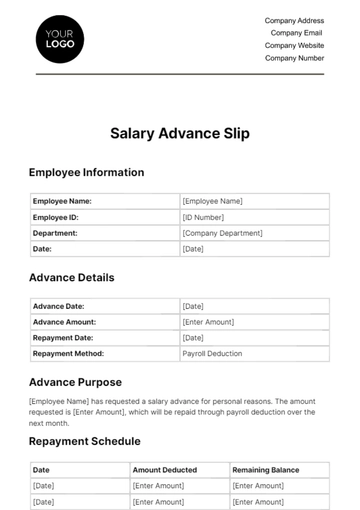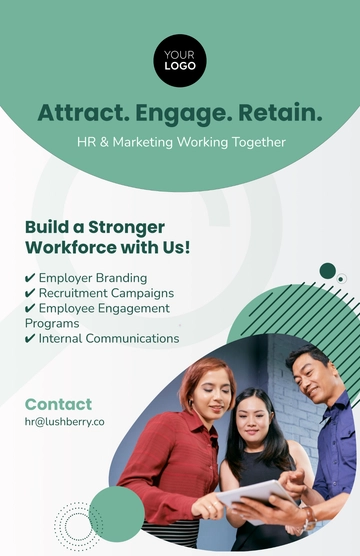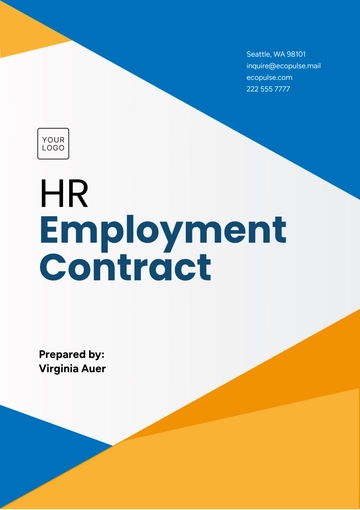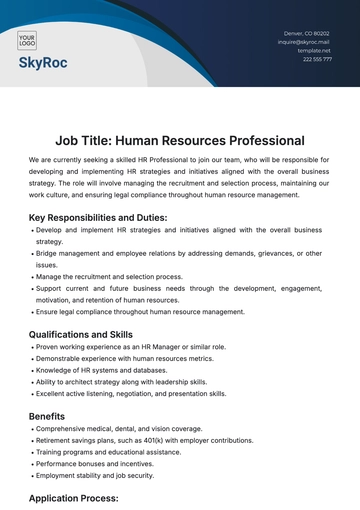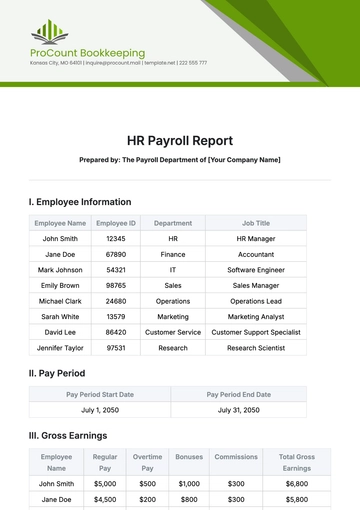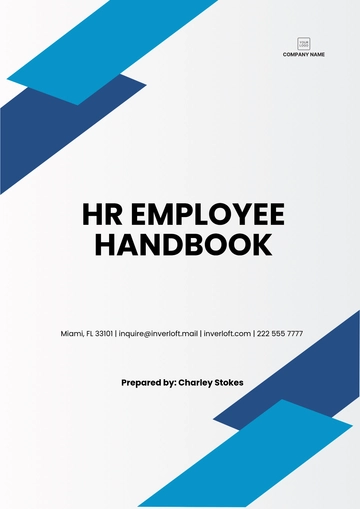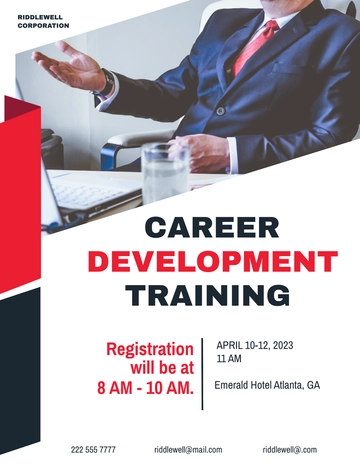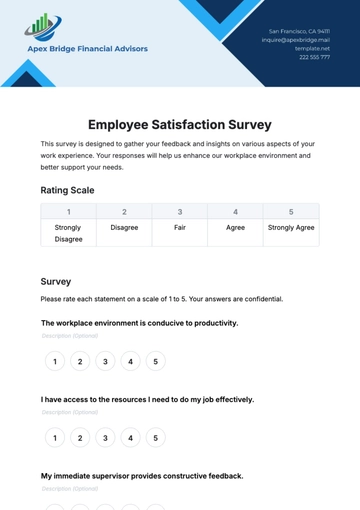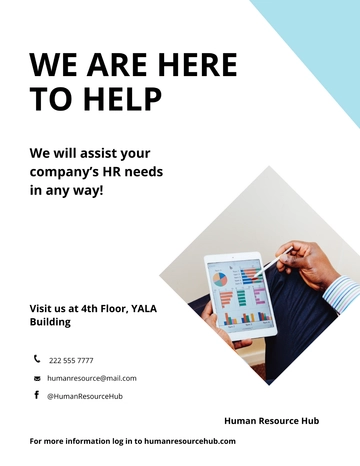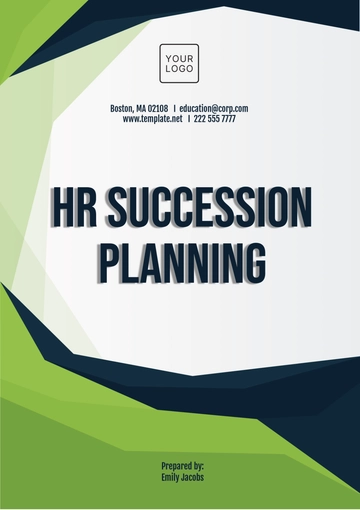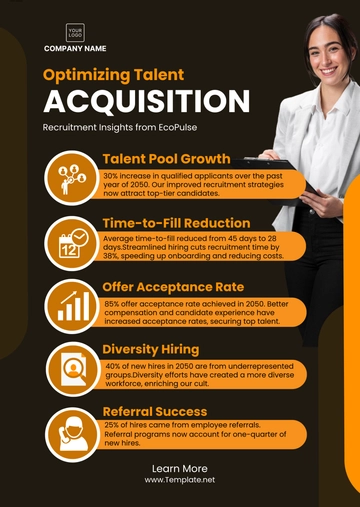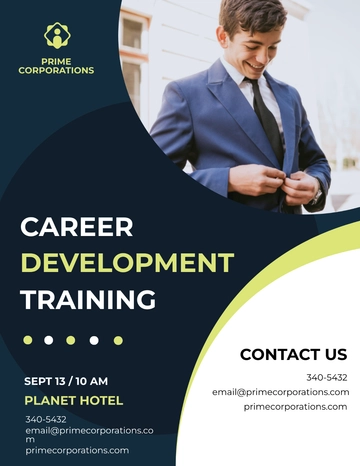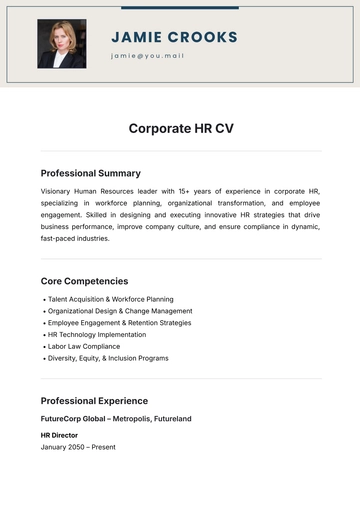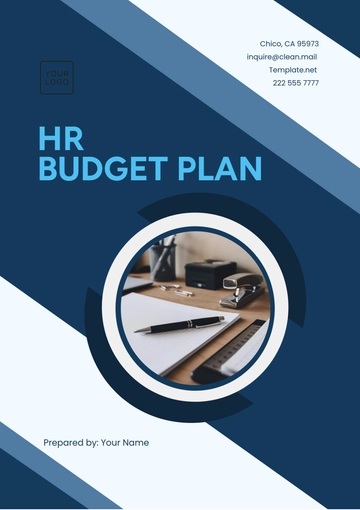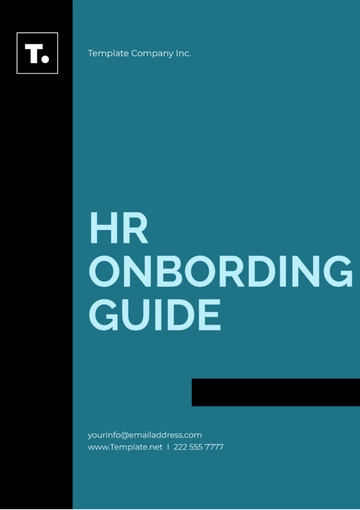Free Training Session Q&A Document HR
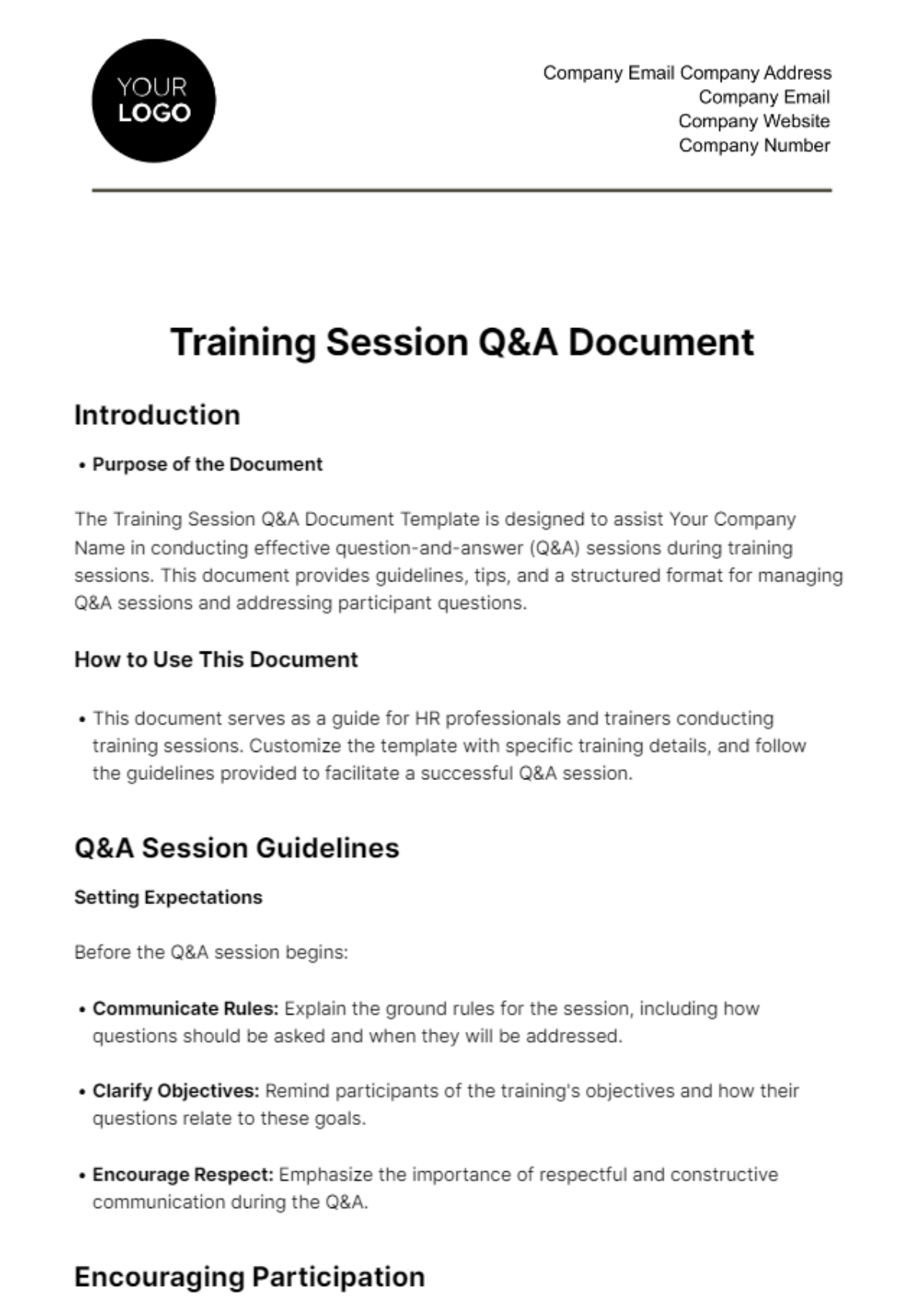
Introduction
Purpose of the Document
The Training Session Q&A Document Template is designed to assist Your Company Name in conducting effective question-and-answer (Q&A) sessions during training sessions. This document provides guidelines, tips, and a structured format for managing Q&A sessions and addressing participant questions.
How to Use This Document
This document serves as a guide for HR professionals and trainers conducting training sessions. Customize the template with specific training details, and follow the guidelines provided to facilitate a successful Q&A session.
Q&A Session Guidelines
Setting Expectations
Before the Q&A session begins:
Communicate Rules: Explain the ground rules for the session, including how questions should be asked and when they will be addressed.
Clarify Objectives: Remind participants of the training's objectives and how their questions relate to these goals.
Encourage Respect: Emphasize the importance of respectful and constructive communication during the Q&A.
Encouraging Participation
To foster active participation:
Invite Questions: Encourage participants to ask questions at any point during the training.
Diverse Participation: Ensure that all participants have an opportunity to ask questions by encouraging a variety of voices.
Thank and Acknowledge: Appreciate participants for their questions, even if they cannot all be answered immediately.
Managing Time
To manage the Q&A session effectively:
Time Allocation: Allocate a specific amount of time for the Q&A portion to ensure it doesn't overrun the training schedule.
Prioritization: Address questions that align with the training's core objectives first.
Redirect Unrelated Questions: Politely guide participants with off-topic questions to discuss them after the training.
Preparing for the Q&A
Review Content: Familiarize yourself with the training content to anticipate potential questions.
Clarify Technicalities: Ensure you understand any technical aspects, terminology, or concepts.
Prepare Answers: Have concise and accurate responses ready for common questions related to the training material.
Responding Effectively
Active Listening: Listen carefully to the question before responding, and rephrase it if necessary for clarity.
Structured Responses: Organize your responses logically, starting with a summary and followed by supporting details.
Encourage Discussion: Foster discussion and input from other participants when appropriate.
Handling Difficult Questions
Stay Calm: Maintain composure when addressing challenging or critical questions.
Acknowledge Validity: Acknowledge the validity of the question, even if you don't have an immediate answer.
Offer Follow-Up: Promise to follow up with a more detailed response or direct participants to additional resources.
Training Title: | Effective Communication Skills Workshop | ||
Date: | September 30, 2050 | Location: | Conference Room A |
Time: | 9:00 AM - 4:30 PM | Trainer: | Michael Kahn |
Participant Information: | |
Name: | [Your Name] |
Department: | Sales |
Job Title: | Sales Manager |
Email: | [Your Email] |
Phone Number: | [Your Number] |
What specific topics or aspects of effective communication would you like the trainer to cover during the session?
I would like to focus on active listening, conflict resolution, and giving and receiving feedback. |
Have you attended any communication-related training sessions in the past? If so, please briefly describe your experience and what you gained from them.
What challenges do you currently face in your role that you believe improving your communication skills could help you address?
Do you have any specific scenarios or examples from your work where better communication would have made a significant difference? Please share them for discussion during the session.
Are there any communication-related tools or techniques that you are already using successfully in your role? If yes, please describe them briefly.
Is there anything in particular that you hope to achieve or learn from this training session?
Do you have any dietary restrictions or allergies that we should be aware of for catering purposes during the training?
Comments/Questions
I'm looking forward to this training session and hope to engage in some role-playing scenarios for better learning. |
Thank you for completing the Training Session Q&A Form. Your input will help us customize the training to meet your needs and expectations.
- 100% Customizable, free editor
- Access 1 Million+ Templates, photo’s & graphics
- Download or share as a template
- Click and replace photos, graphics, text, backgrounds
- Resize, crop, AI write & more
- Access advanced editor
Optimize your training sessions with our Training Session Q&A Document HR Template. Facilitate participant engagement and knowledge retention by providing a structured Q&A format. Simplify the learning process, encourage interaction, and ensure a comprehensive understanding of your training content. Elevate your training sessions with this user-friendly template today.
